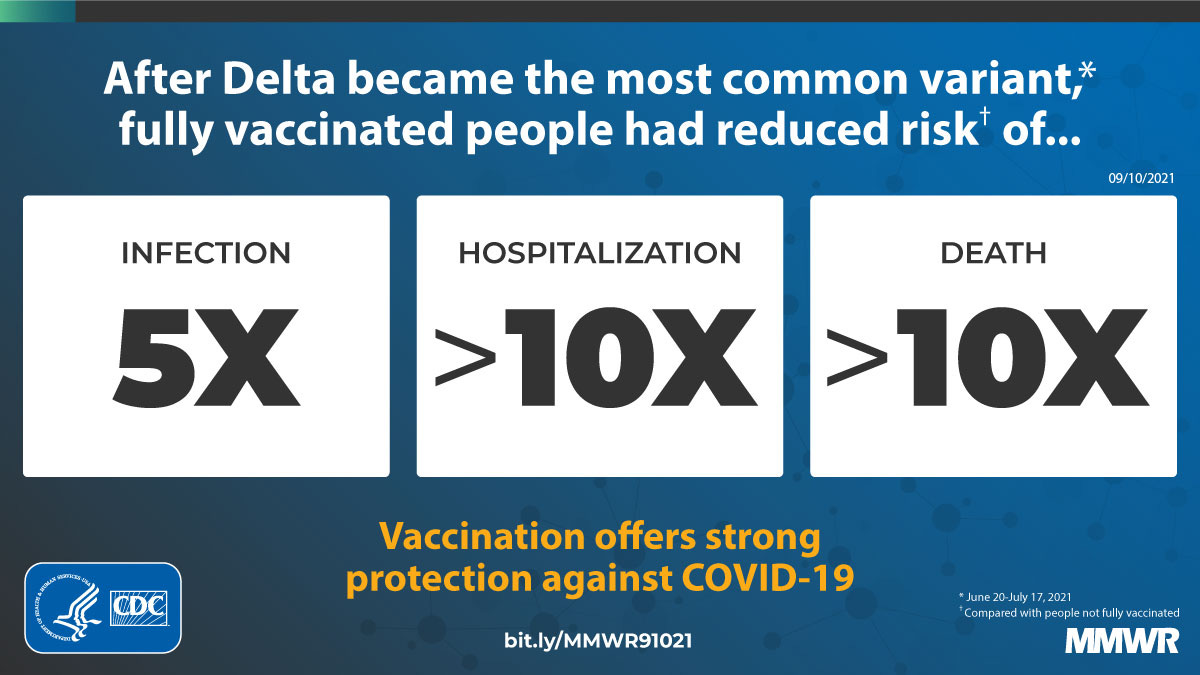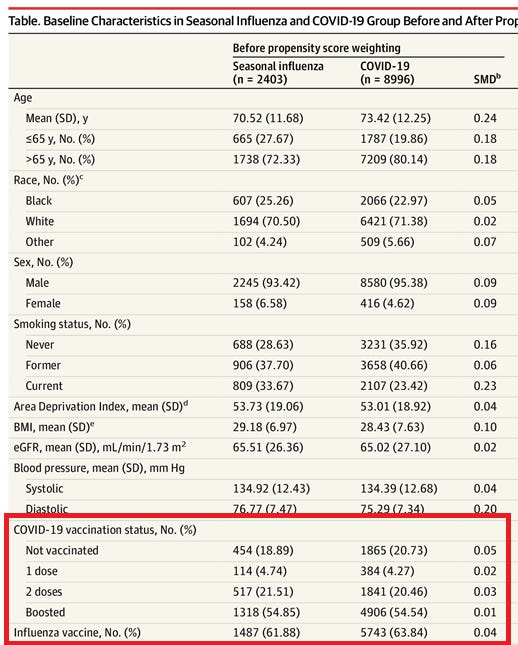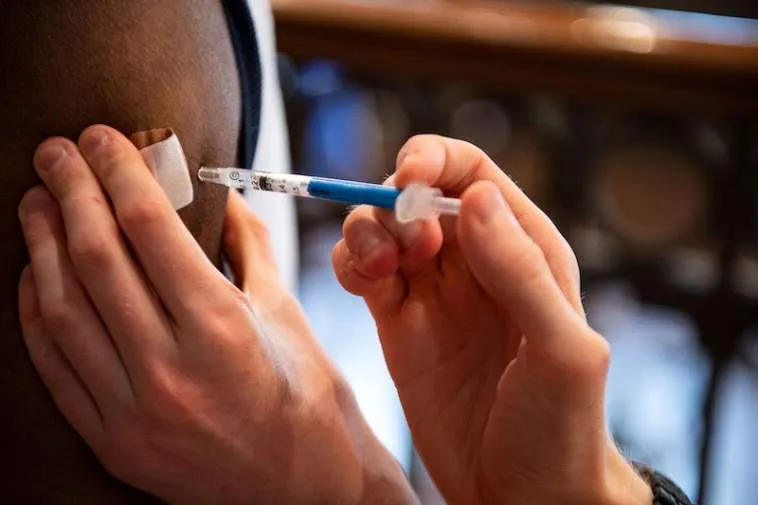Executive summary
The ridiculous CDC claim
For the record, here’s what the CDC said:

About the JAMA paper
Risk of Death in Patients Hospitalized for COVID-19 vs Seasonal Influenza in Fall-Winter 2022-2023.
This paper was published in JAMA and had over 100,000 views.
This paper looked at the risk of death in VA patients hospitalized for COVID vs. flu between October 1, 2022, and March 2, 2023. This is virtually all men, and the groups had a similar average age (71 vs. 73).
BASELINE characteristics were determined from the people they enrolled. Between October 1, 2022, and January 31, 2023, they enrolled all individuals who were admitted to the hospital with either COVID or the flu (but NOT both).
Note: the study excluded those hospitalized with both infections. However, many people in the study had taken BOTH the COVID and flu vaccines.
The BASELINE characteristics were the stunning result in my case because the people hospitalized with COVID shouldn’t have the same vaccination profile as the people hospitalized with the flu. More on this below.
But the main point of the paper is to show that if you were hospitalized for one OR the other (not both), that you were somewhat more likely to die from COVID than flu. I don’t disagree with that conclusion.
The paper looked ALSO looked at the risk of dying from COVID for the unvaccinated vs. vaccinated:

Here are the findings for DEATH:
- The paper found that there failed to be a statistically significant death benefit from 1 or 2 doses vs. the unvaccinated. It didn’t point this out. This is a big deal: if you were vaccinated with the primary series vs. unvaccinated, they found NO STATISTICALLY SIGNIFICANT DEATH BENEFIT. At the very best, the benefit was 2.32/1.66 which works out to 40% fewer deaths, but the numbers were simply too small to say it was better (the error bars overlapped by 50%).
- For boosted vs. the unvaccinated, the 95% error bars almost touched, so scientists can say that it’s 95% likely that the boosted people died less in the hospital if they got COVID (but there is a 5% chance that there also is no difference). But remember that if you get boosted and are still alive, there is selection bias.
What the study did not show
Does that mean you should be vaccinated?
No! The predicate is highly restrictive: “if you survived all the COVID vaccine shots and are still alive and you got COVID and ended up in the hospital, …”
The question an elderly person should be asking is whether people lived longer who got the COVID shots vs. people who didn’t.
In particular, this study did NOT track a randomly selected cohort from Jan 2020 and then did a time series analysis to see how the vaccinated performed against the unvaccinated in terms of death. They never seem to want to do these studies for some reason. I wonder why? Hmmmm….
I complained about this here:
Has anyone seen a retrospective cohort study or case control study using the entire Medicare database, age, stratified, to compare results for vaccinated vs. unvaccinated on mortality?
Nobody, I’ve asked, is aware of such a study. If that is true, it’s amazing to me that nobody…
— Steve Kirsch (@stkirsch) October 11, 2023
No one was aware of any such study as you can see from the comments. I was not surprised.
If you want to prove the vaccine works or not, that’s the way to do it. Why hasn’t anyone done this? Could it be that such a study would expose a result that no journal would publish?
The stunning result they completely “forgot” to mention: there was absolutely NO HOSPITALIZATION benefit to being vaccinated

For our purposes, the flu group is essentially the “control” group. It shows you the baseline vaccination status breakdown of the overall VA population. This is because the COVID vaccine doesn’t protect you from the flu.
The COVID group (second column) shows you the vaccination status breakdown of VA members who were hospitalized with COVID.
If the vaccine worked as advertised above (10x reduction in hospitalization risk), we’d expect to see about 70% unvaccinated people being hospitalized for COVID.
But we don’t. It’s not even close. The breakdown is nearly exactly the same (this is why the standard mean deviation (SMD) numbers are so small).
In plain English, what this means is that the COVID vaccines did virtually nothing to reduce your chance of hospitalization from COVID.
This is a big whoops.
For some reason, the paper failed to note this issue. So I thought I would point it out for you in case you didn’t notice.
The second big reveal: the flu vaccine doesn’t work either!
The baseline characteristics show that the percentage of people who got the flu shot is only slightly lower in the people who were hospitalized for the flu.
This is a second big whoops.
It shows that the flu shot didn’t work.







